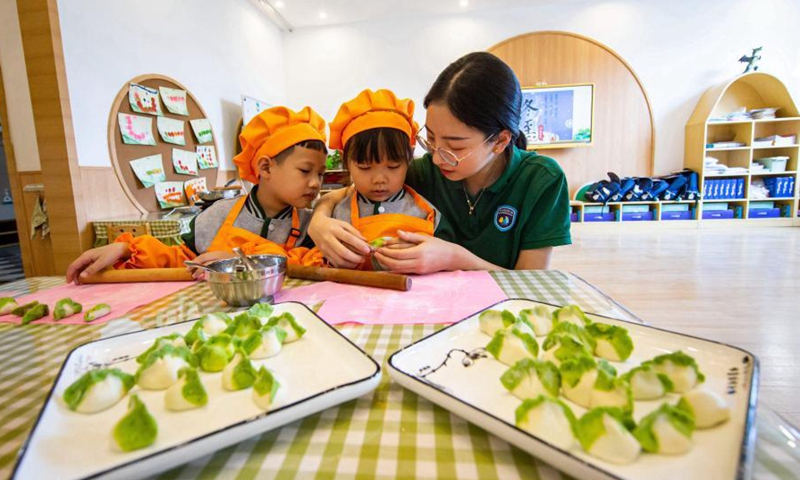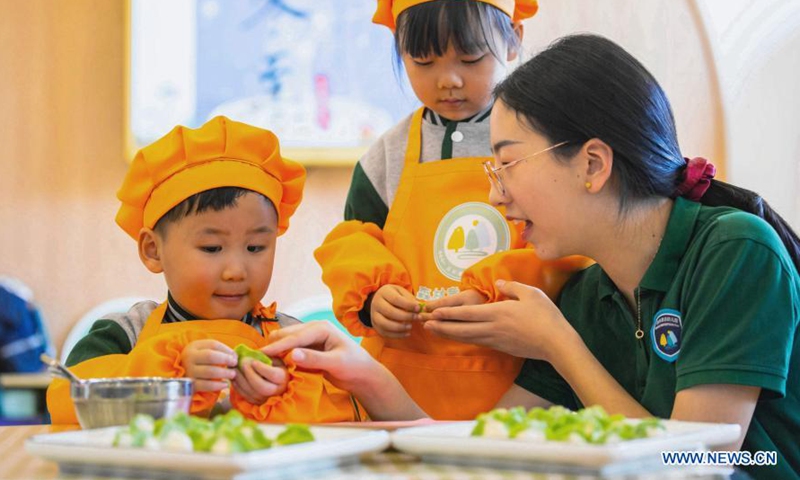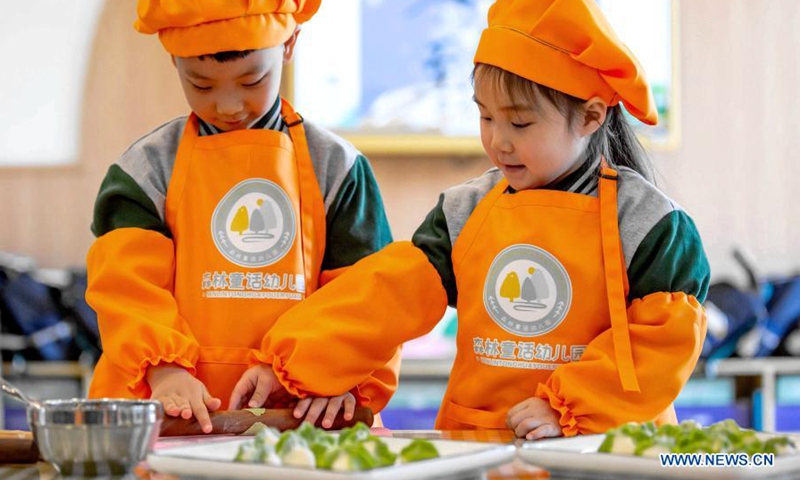Children learn to make dumplings in celebration of Winter Solstice

Children learn to make dumplings from their teacher in celebration of the Winter Solstice or Dongzhi in their kindergarten in Wu'an, north China's Hebei Province, Dec. 21, 2020. Winter Solstice, the shortest day of the year, falls on Dec. 21 or 22. In Chinese culture, it marks the beginning of deep winter and a break from farming in traditional agricultural society. It is also a time for family gatherings. Northern China has maintained the tradition of eating dumplings on this day, while people in southern China eat tangyuan, or rice ball soup. (Xinhua/Wang Xiao)

Children learn to make dumplings from their teacher in celebration of the Winter Solstice or Dongzhi in their kindergarten in Wu'an, north China's Hebei Province, Dec. 21, 2020. Winter Solstice, the shortest day of the year, falls on Dec. 21 or 22. In Chinese culture, it marks the beginning of deep winter and a break from farming in traditional agricultural society. It is also a time for family gatherings. Northern China has maintained the tradition of eating dumplings on this day, while people in southern China eat tangyuan, or rice ball soup. (Xinhua/Wang Xiao)

Children learn to make dumplings in celebration of the Winter Solstice or Dongzhi in their kindergarten in Wu'an, north China's Hebei Province, Dec. 21, 2020. Winter Solstice, the shortest day of the year, falls on Dec. 21 or 22. In Chinese culture, it marks the beginning of deep winter and a break from farming in traditional agricultural society. It is also a time for family gatherings. Northern China has maintained the tradition of eating dumplings on this day, while people in southern China eat tangyuan, or rice ball soup. (Xinhua/Wang Xiao)